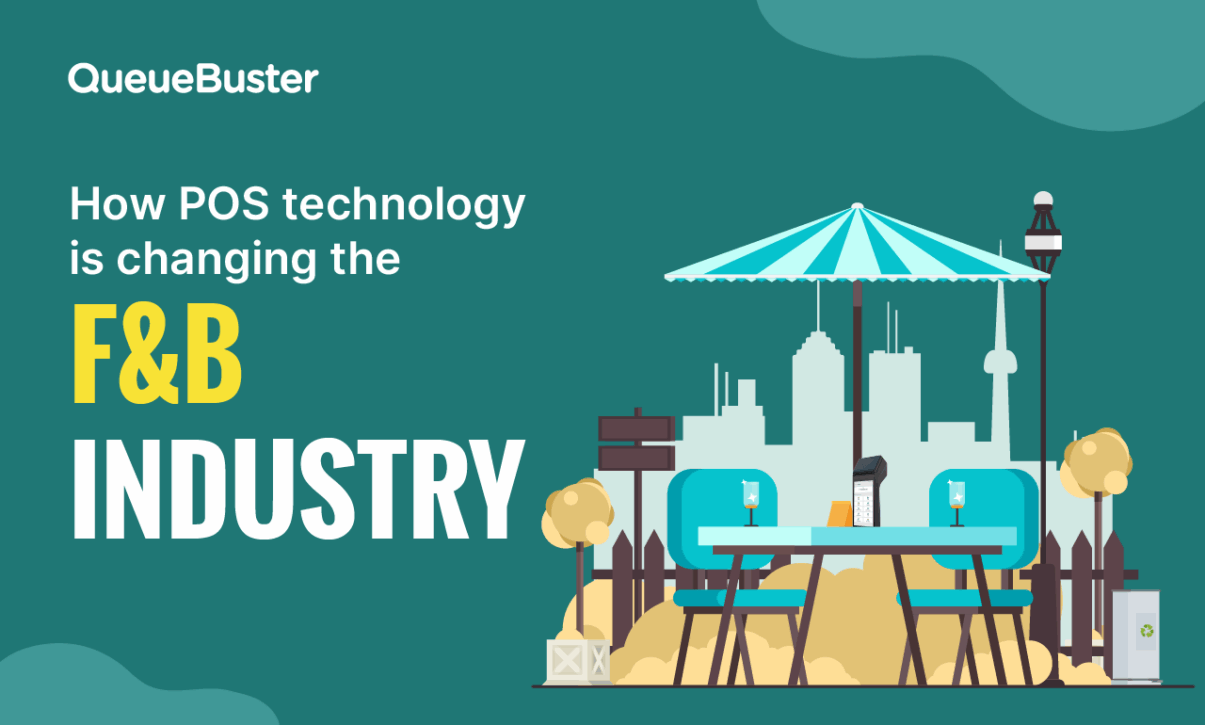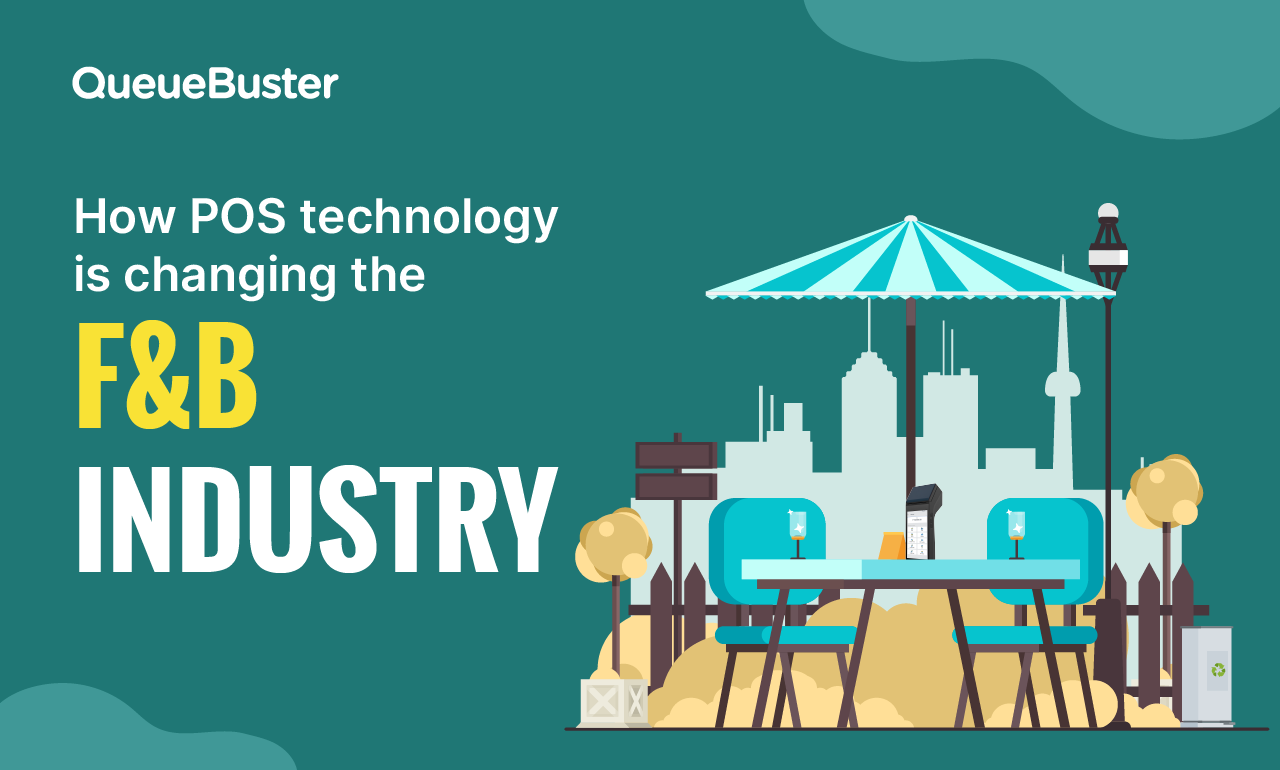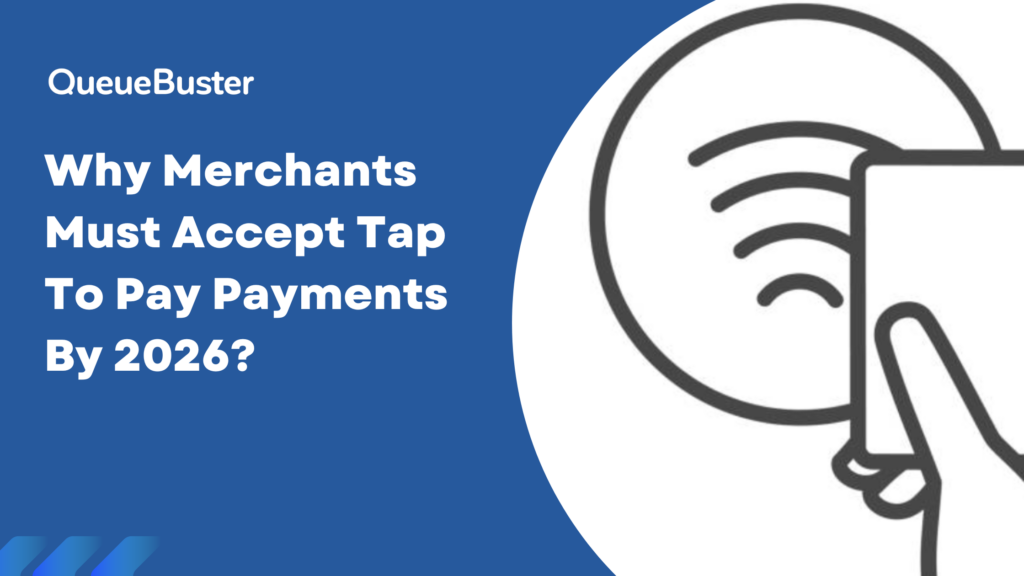
How POS Technology is Changing the F&B Industry
How POS Technology is Changing the F&B Industry

By Charu Gupta Published: October 7th, 2025
The Food & Beverage (F&B) industry has always been fast-paced, customer-driven, and innovation-focused. From quick-service outlets to fine-dining restaurants, one factor that determines success is efficiency, both in operations and customer experience. Over the past few years, technology has been the backbone of this transformation, and POS softwares have emerged as one of the most powerful tools reshaping the F&B industry.
In this blog, we’ll explore how POS technology is changing the F&B landscape, improving operations, boosting profits, and redefining how restaurants serve their customers.
What Is POS Technology?
A Point of Sale (POS) system is more than just a billing machine. It’s an integrated solution that combines sales, inventory, customer management, analytics, and payment processing into one platform. Modern POS systems are cloud-based, mobile, and equipped with features tailored specifically for the F&B industry — such as KOT (Kitchen Order Ticket) management, table mapping, recipe management, and loyalty programs.
In essence, POS technology helps restaurant owners digitize, streamline, and automate their business operations — all while keeping customers happy and operations smooth.
1. Streamlined Order Management
Earlier, restaurant staff manually took orders, noted them on paper, and relayed them to the kitchen — a process prone to human error and delays. Today, POS systems have revolutionized this workflow.
How it helps:
- Orders are directly entered into the POS and instantly reflected on kitchen display systems (KDS).
- No miscommunication or order loss — everything is digitally tracked.
- Multiple order types (dine-in, takeaway, online delivery) are managed from a single interface.
This not only enhances order accuracy but also reduces serving time, ensuring customers get their food faster — a critical factor in customer satisfaction.
2. Integration with Online Delivery Platforms
In the post-pandemic world, online delivery has become a major revenue channel for restaurants. However, managing multiple aggregators like Swiggy, Zomato, or UberEats manually can be chaotic.
Modern POS systems come with seamless integrations that sync all orders from different delivery platforms into one dashboard.
Benefits:
- No need to maintain multiple devices for each delivery partner.
- Auto-syncs menu updates, pricing, and inventory across platforms.
- Tracks delivery performance and commissions easily.
This integration ensures that F&B businesses stay efficient and avoid human errors that can lead to customer dissatisfaction or revenue loss.
3. Smarter Inventory and Recipe Management
One of the biggest pain points in the F&B industry is inventory wastage. With perishable goods and fluctuating demand, tracking stock manually is nearly impossible.
POS technology provides real-time inventory management, alerting managers when ingredients are low, nearing expiry, or being overused.
Key features:
- Ingredient-level stock tracking.
- Automatic deduction of inventory based on recipes and orders.
- Analytics to forecast demand and optimize purchases.
With smart inventory management, restaurants can cut down on waste, reduce food costs, and ensure every dish maintains consistent quality — all while protecting profit margins.
4. Simplified Billing and Payments
The payment experience is the last touchpoint a customer has — and it must be smooth. POS systems today support multiple payment modes including cash, UPI, cards, and digital wallets, all integrated seamlessly into one system.
Moreover, POS software can handle split billing, discounts, happy hour pricing, and tax automation — saving staff from manual calculations.
Result:
- Faster checkouts and shorter queues.
- Error-free bills.
- Increased customer satisfaction.
Some POS systems even allow self-checkout or QR code-based ordering and payments, which enhances convenience and aligns with the modern “contactless dining” trend.
5. Data-Driven Business Decisions
Modern POS systems don’t just record transactions, they generate valuable insights.
With in-depth reporting dashboards, restaurant owners can analyze:
- Top-selling dishes and peak hours.
- Staff performance and table turnover rates.
- Customer buying patterns and seasonal trends.
By studying these metrics, F&B business owners can make data-driven decisions like adjusting menu prices, redesigning menus, or planning marketing campaigns more strategically.
In short, POS analytics help businesses grow intelligently rather than through guesswork.
6. Enhanced Customer Experience
In today’s competitive F&B space, customer experience is everything. A POS system enables restaurants to create personalized experiences that build loyalty.
Examples:
- Loyalty programs that reward repeat customers.
- Capturing birthdays, preferences, and visit frequency to personalize offers.
- Easy refund and reorder options for better satisfaction.
When customers feel recognized and rewarded, they’re more likely to return, which boosts both retention and word-of-mouth marketing.
7. Increased Operational Efficiency
A well-implemented POS system reduces dependency on manual processes, minimizes errors, and optimizes workforce utilization.
From assigning tables to generating daily reports automatically, everything becomes faster and more transparent.
For business owners managing multiple outlets, a cloud-based POS allows them to track performance across branches, anytime, anywhere.
It also simplifies staff training since POS interfaces are user-friendly, reducing onboarding time and operational chaos.
8. Cloud Technology and Remote Management
Cloud-based POS systems have taken flexibility to the next level. Restaurant owners can now access data, view reports, and make decisions remotely, from any device.
This is especially helpful for multi-outlet restaurant chains, franchise owners, or entrepreneurs who travel frequently.
Cloud POS also ensures data security, with automatic backups and encrypted transactions, keeping sensitive customer and business information safe.
9. Reduced Pilferage and Fraud
Manual billing systems often leave room for manipulation or theft. POS systems eliminate this by maintaining a digital audit trail for every transaction.
Managers can track:
- Canceled or modified bills.
- Staff activity logs.
- Discounts and complimentary item reports.
This transparency deters fraud and helps maintain financial integrity, a major advantage for high-volume F&B businesses.
10. Scalability for Growth
Whether you’re running a small café or a multi-city restaurant chain, POS systems can easily scale with your business.
Adding new outlets, updating menus, or integrating new services can all be done centrally, without starting from scratch.
This scalability makes POS technology a long-term investment, not just a one-time purchase.
The Future of POS in the F&B Industry
The next generation of POS technology is set to become even more intelligent and interconnected.
We’re already seeing trends like:
- AI-driven sales forecasting based on customer behavior and weather data.
- Voice-activated POS terminals for hands-free operations.
- IoT integration for tracking kitchen appliances and energy usage.
- Automated marketing based on real-time customer data.
These advancements will further empower restaurants to deliver faster, smarter, and more delightful dining experiences.
Final Thoughts
The F&B industry is evolving rapidly — and so are customer expectations. In this environment, POS technology isn’t just a tool, it’s a game-changer.
From simplifying operations to personalizing customer journeys, modern POS systems help restaurants operate more efficiently, make informed decisions, and stay ahead of the competition.
For any F&B business, whether it’s a small café, a cloud kitchen, or a fine-dining chain, adopting a smart POS solution is no longer optional. It’s the foundation of future-ready growth.
Popular Posts

MEWA India 2026: Showcasing QueueBuster POS to the Global Dry Fruits Industry
MEWA India 2026 was not just another industry event for us, it […]

Why Merchants Must Accept Tap to Pay Payments by 2026
The way customers pay has changed rapidly over the last few years […]